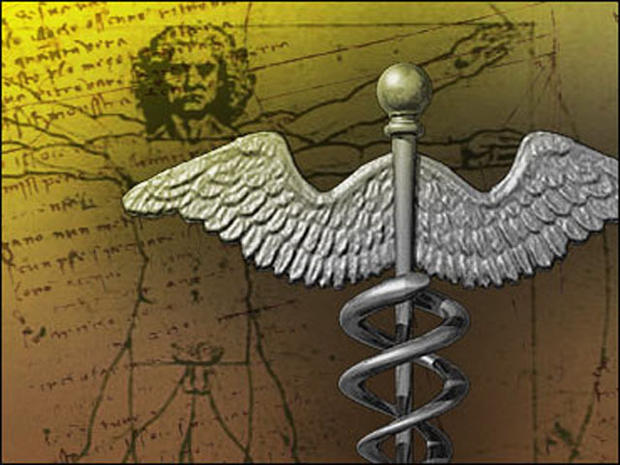Prostate cancer surgery won't boost survival in men with early-stage disease, study finds
(CBS News) Men with early-stage prostate cancer often face a difficult choice as to treatment: Do they opt for radiation, surgery or "watchful waiting" to see if the cancer gets worse.
A new study in the New England Journal of Medicine finds men who opt to surgically remove their prostate gland - a procedure called a radical prostatectomy - are no less likely to die than men who choose wait and monitor their symptoms to see if the cancer progresses.
Prostate cancer screening study adds to debate over PSA tests
Panel's PSA test recommendations spark debate among doctors, cancer survivors
The study adds to the ongoing debate surrounding prostate-specific antigen (PSA) testing and whether the tests pick up cancers that may be too slow-growing to ever cause a problem.
In May, the U.S. Preventive Services Task Force, a panel of advisors on government medical guidelines, reviewed existing research and reported in its final recommendation that healthy men of all ages should not take a PSA test because the potential harms from a positive test outweigh the benefits from catching the cancer early.
The study tracked 731 men with early-stage prostate cancer found through PSA testing, average age of 67, who agreed to be randomized to either receive radical prostatectomy or just observation from a doctor between November 1994 through January 2002. The men were followed-up with by January 2010 to see how they fared.
The researchers found that out of 364 men who had their prostate removed, 171 died (47 percent), and 21 of those men (6 percent) died from prostate cancer or treatment. In comparison, 183 of 367 people who were assigned for watchful waiting died (50 percent), and 31 of the men died from prostate cancer (8 percent). The differences between groups were not statistically significant, meaning prostate cancer surgery did not significantly reduce the men's risk of dying from the cancer or any cause, as compared with the observation approach.
"That's a key point" that men should absorb, Dr. Durado Brooks, director of prostate and colorectal cancers for the American Cancer Society who was not involved in the new research, told the Los Angeles Times. "When most men are told they have prostate cancer, their immediate thought is, 'Oh my God, I'm going to die,' and their immediate next step is, 'Let's do something about this.' " By then, he said, "the idea of an observation approach is lost."
Within two years of surgery, the researchers found that 81 percent of the men who underwent the procedure experienced erectile dysfunction, 17 percent had urinary incontinence with symptoms such as "dribbling" or having "no control over urine," and 12 percent reported bowel dysfunction.
"Our findings support observation for men with localized prostate cancer, especially those who have a low PSA value and those who have low-risk disease," wrote the researchers, led by Dr. Timothy J. Wilt, a professor of medicine at the University of Minnesota School of Medicine. "Up to two-thirds of men who have received a diagnosis of prostate cancer have a low PSA value or low-risk disease, but nearly 90 percent receive early intervention -- typically surgery or radiotherapy."
The U.S. Preventive Services Task Force found for every 1,000 men who get a PSA test, 30 to 40 will develop erectile dysfunction or urinary incontinence as a result of treatment, two men will experience a major cardiovascular event such as a heart attack caused by treatment, and one man will develop a potentially deadly blood clot in his leg or lungs from treatment. They then gave PSA tests a "D" recommendation, meaning doctors should not offer the tests.
"The idea that we are overtreating prostate cancer has been well known for a long time. Many men with low-risk prostate cancer will probably die of other causes rather than die of prostate cancer," Dr. Manish Vira, director of the fellowship program in urologic oncology at the North Shore-LIJ Health System's Smith Institute for Urology in New Hyde Park, N.Y., told WebMD. Vira was not involved in the new study.
In an accompany editorial published in the same issue of the journal, Dr. Ian Thompson, director of the Cancer Therapy & Research Center at the University of Texas Health Science Center in San Antonio, wrote that the study doesn't necessarily apply to all men, and that those with high-grade, aggressive prostate cancers could still benefit from the surgery.
"The real point is that we shouldn't focus on finding every prostate cancer because, as this study and all the screening studies show, the majority that you find don't need to be found,'' Dr. Thompson told the New York Times. "What we should focus our screening on and our testing on are patients who are likely to have more aggressive tumors in which treatment seems to make a difference."
The National Cancer Institute has more for men on choosing a treatment for early-stage prostate cancer.

